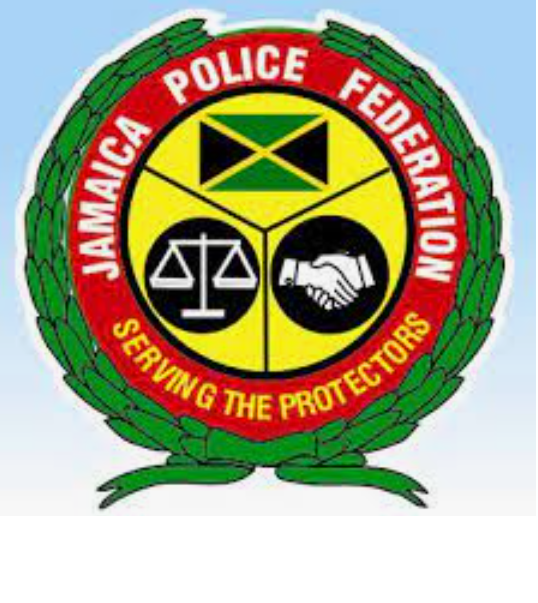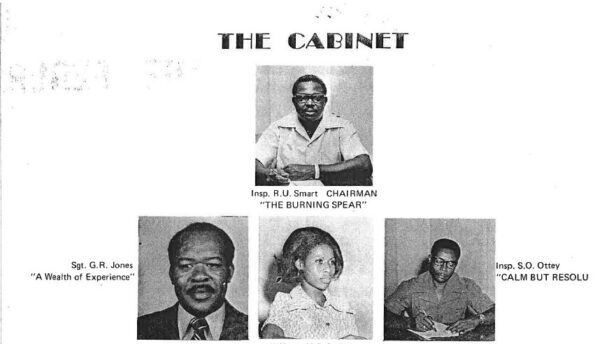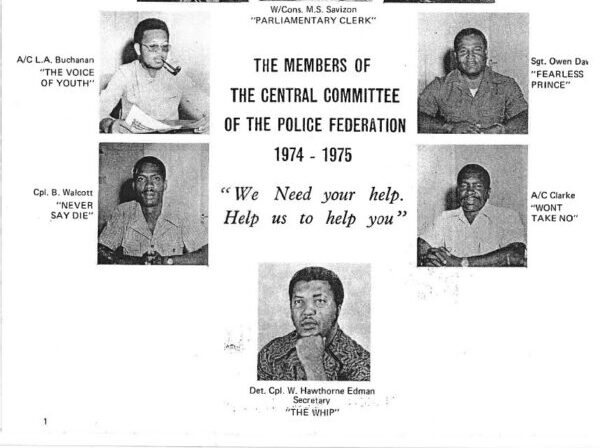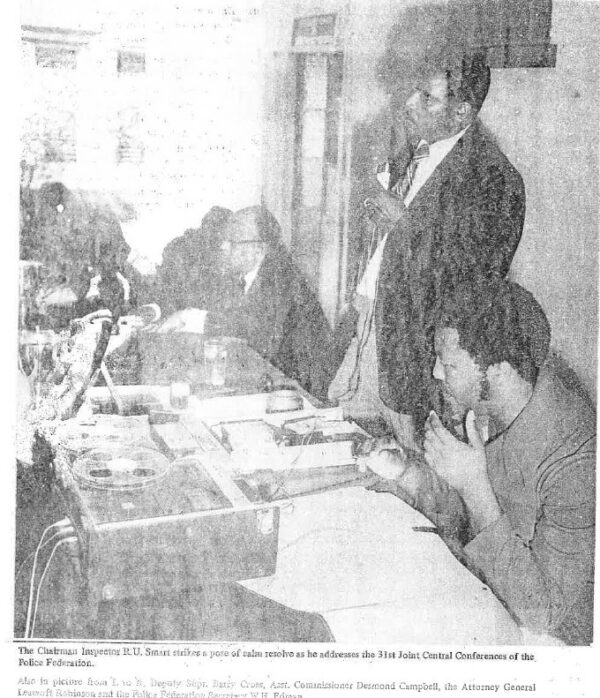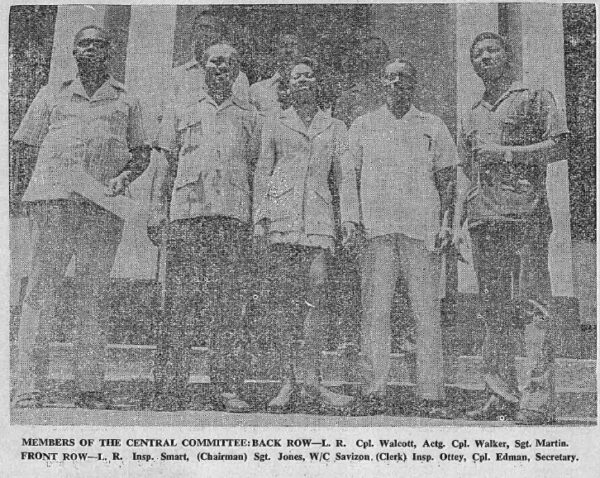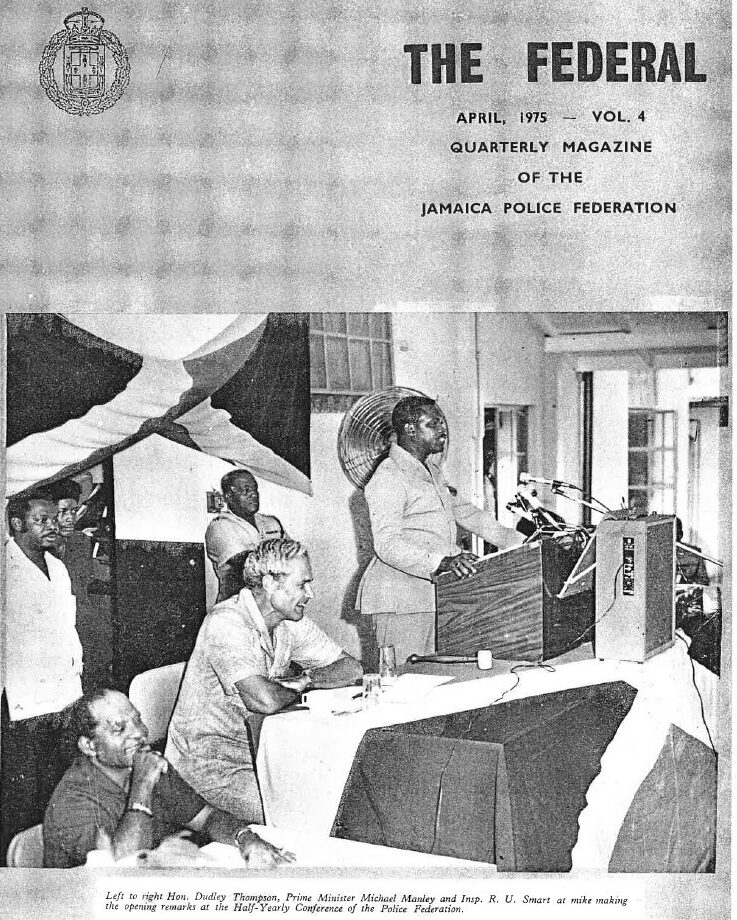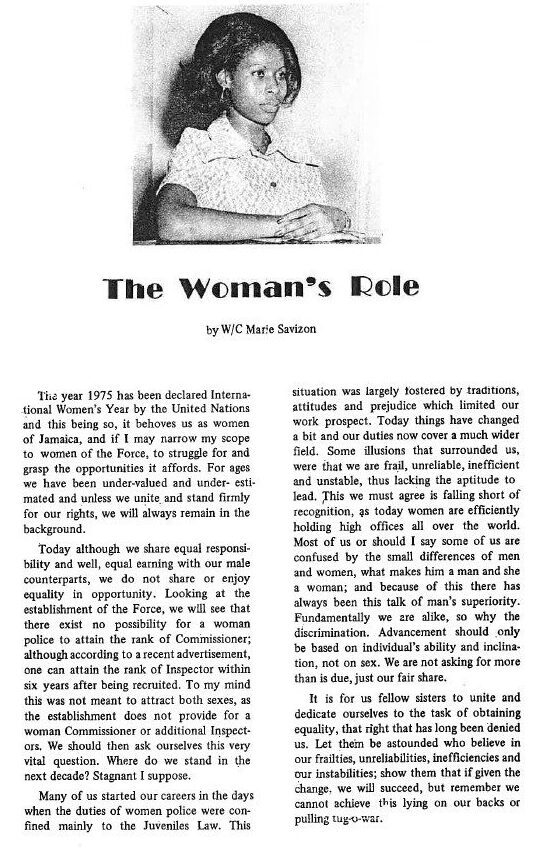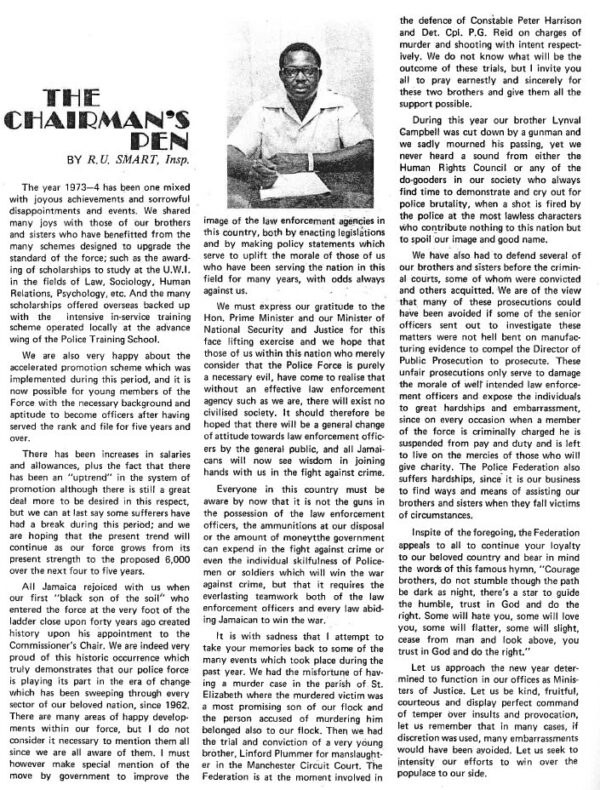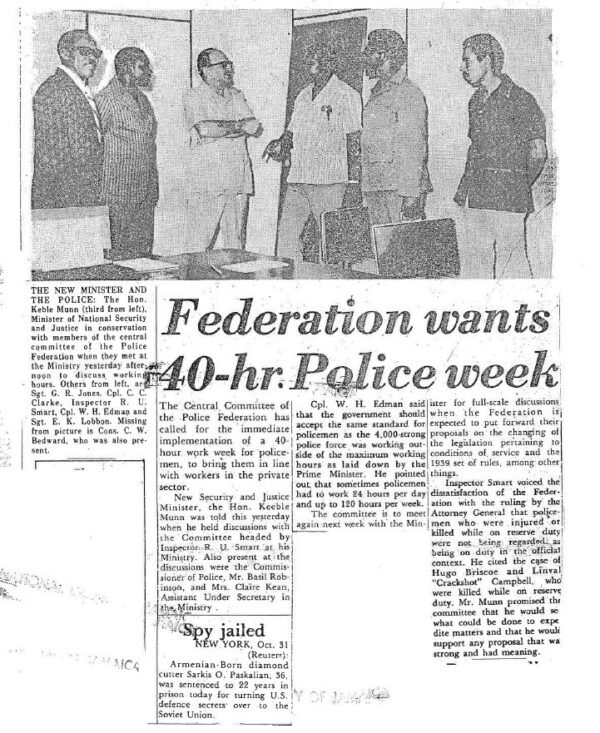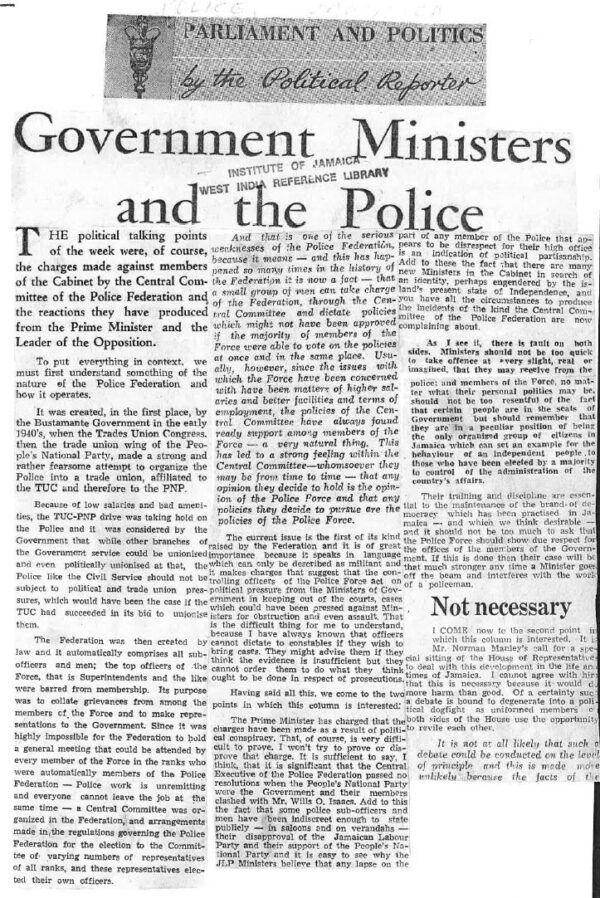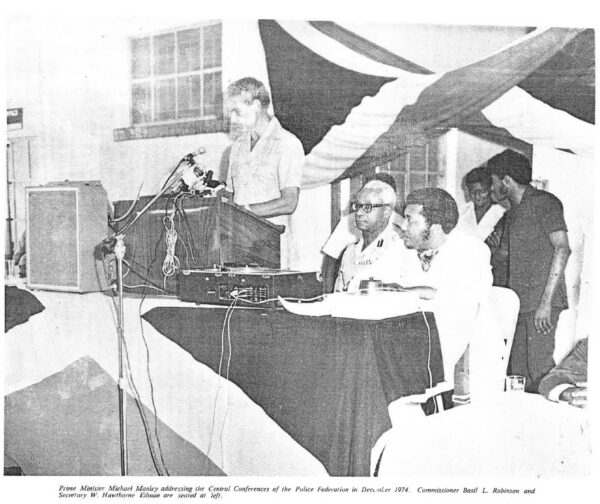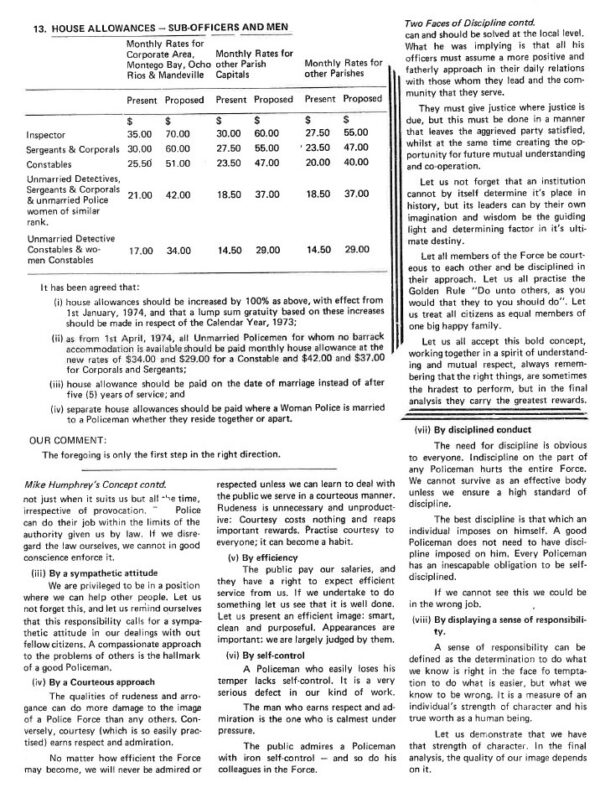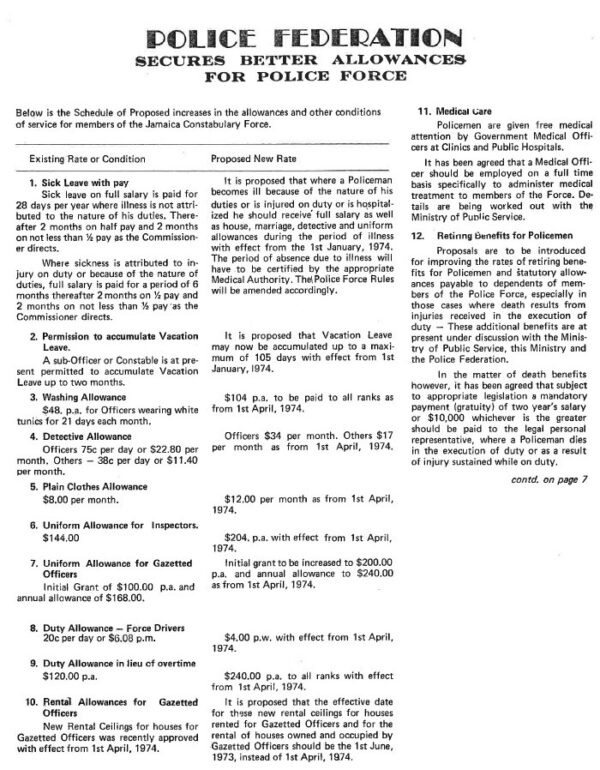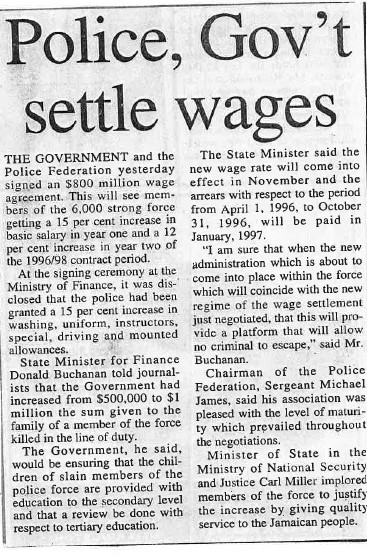The Genesis
How did the Police Federation come about? Let us take a walk down history lane back to 1944.
On October 20, 1944, the Police Federation was first commissioned. This account is accurate, as the Daily Gleaner of that date, allowed the commissioning of the Police Federation to share spaces with interesting news.
On the front page as topical and news worthy issues were, the drama of the second North Atlantic war popularly called World War Two.
Among the important headlines of the day were;
“Romans take important Reich Town on East Front”
“End of bloody Scheldt battle is now insight”
“Germans on Greek Island surrender to cruiser Ajax”
“Allied invasion of Central Philippines reported by Japs,”
And
“To prevent Policemen joining trade Unions…Police Federation to be formed through which members will make representations.”
Those headlines seek to remind us today, that this Police Federation came about in a period of great upheaval and global turmoil propelled by the 1938 labour unrest. The rights of rank and file members were being trampled on, wages were poor, the police officers of the day did not have a voice; they were indeed voiceless.
The Essence of our Being
This bedrock so named the Police Federation, was given the Legislative and Regulatory frame work through the Constabulary Force Act. It was deemed to be the proverbial tiger with no teeth, but the brave men and women then who were as strident as we are today, took up the mantle of representation.
It has never been an easy road for the Federation and the age old adage rings true, “the more things change the more they remain the same.”
Throughout its history, this Federation has experienced trying times from within and from the outside. But as the great playwright and poet William Shakespeare aptly reminds us through the character of Duke Senior in “As You Like It”…
Sweet are the uses of adversity
Which, like the toad, ugly and venomous
Wears yet a precious jewel in his head...”
The Evolution
This bedrock so named the Police Federation, was given the Legislative and Regulatory frame work through the Constabulary Force Act. It was deemed to be the proverbial tiger with no teeth, but the brave men and women then who were as strident as we are today, took up the mantle of representation.
It has never been an easy road for the Federation and the age old adage rings true, “the more things change the more they remain the same.”
Throughout its history, this Federation has experienced trying times from within and from the outside. But as the great playwright and poet William Shakespeare aptly reminds us through the character of Duke Senior in “As You Like It”…
Sweet are the uses of adversity
Which, like the toad, ugly and venomous
Wears yet a precious jewel in his head...”
Continued Advocacy
Built on the backs of the rank and file members, the Police Federation, in spite of the challenges cannot be daunted, but must assert itself by insisting on legislative changes such as the archaic Book of Rules. Policy changes in the Jamaica Constabulary Force must be aligned with twenty-first century policing. These policy changes must not only be geared towards effective and productive policing, but also solid welfare infrastructure that will make our members more at ease within the environment they police.
We will not delude ourselves that the challenges are many, despite the reason for its formation, this organization has survived, notwithstanding the obstacles and the many naysayers who would wish otherwise.
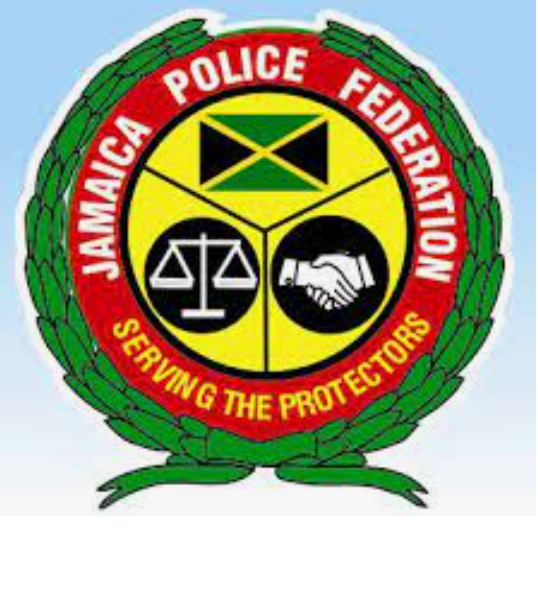
Did You Know?
In the life of the Police Federation, only two Constables have ever served as chairmen, E. K
Loban and Franz Morrison.
Corporal Arleen McBean is the only female to hold the position of chairman in the history of the
Police Federation.
The longest serving female General Secretary was Inspector Jacqueline Brown. Serving from
2008-2011 and from 2012-2013.
The Police Federation was created in the first place by the Bustamante Government in the early
1940’s when the trade Union Congress (TUC) then the Trade Union Wing of the Peoples
National Party, attempted to form the police into a Trade Union
The Commissioner of Police selects the Compulsory Signing Officer who signs all cheques on his behalf.
Our Founding Fathers
They were brave men and women who championed the cause of representation and this
publication salutes them.
First Committee Members (1948):
• Sub- Inspector Simeon A. Bailey
• Sergeant Major C. N. Brown
• Sergeant Major J. N. Ricketts
• Detective/Sergeant J. E. Pommels
• Sergeant G. S. Anderson
• Corporal D. L. Scott
• Corporal A. A. Dyer
• Detective / Acting Corporal A. A. Smith
• Second Class Constable H. E. Williams.
Immediate Post Independence Era
• K. Ford – Retired Deputy Superintendent
• H. I. Holland – Retired Assistant Commissioner of Police
• Barry Harrison – Retired Senior Superintendent
• Altimond Patterson – Retired Senior Superintendent

